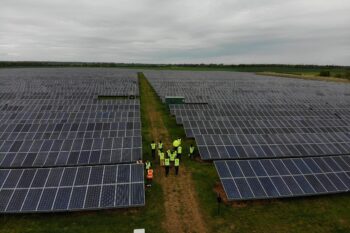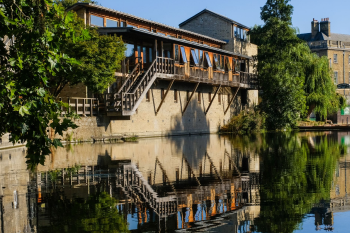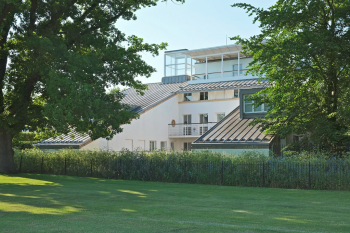Exploring the potential for water source heat pumps
In 2021, Darwin College commissioned an estate-wide review of the buildings and their heating systems. A working group of College members was subsequently tasked with developing an ambitious but achievable plan to decarbonise the entire built estate over the next decade. It examined the scope for fabric improvements to reduce energy demand and the various options for renewable heat: air source heat pumps, ground source heat pumps, direct electric heating powered by on-site PV generation, and a closed heat network fed from a water source heat pump using the river Cam as a heat source. In 2022, in a collaboration with six other riverside Colleges, Mott MacDonald were commissioned to monitor water flow, depth and temperature at four locations on the river and to produce a detailed hydrology study. The report, delivered in 2023, confirms the considerable potential of the river to supply heat for space and hot water heating for the adjacent Colleges.
A summary of Darwin’s work towards harnessing the river for heating purposes is available here.






